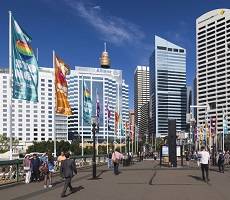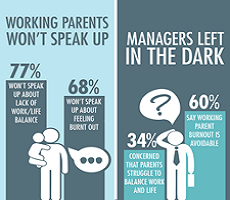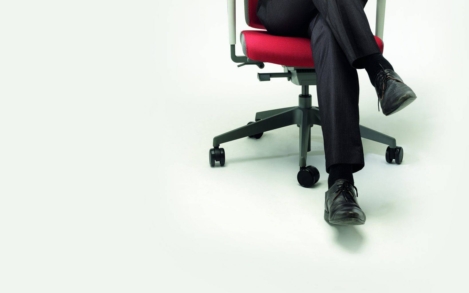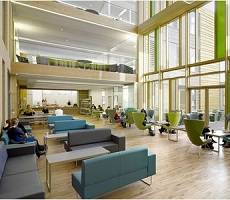October 27, 2015
Study links green building design to higher cognitive performance 0
People who work in well-ventilated offices with below-average levels of indoor pollutants and carbon dioxide have significantly higher cognitive functioning scores in crucial areas such as responding to a crisis or developing strategy than those who work in offices with typical levels. That is the headline finding of a new study from the Harvard T.H. Chan School of Public Health’s Center for Health and the Global Environment, SUNY Upstate Medical University, and Syracuse University published this week in the journal Environmental Health Perspectives.The researchers looked at people’s experiences in “green” vs. “non-green” buildings in a double-blind study. The findings suggest that the indoor environments in which many people work daily could be adversely affecting cognitive function-and that, conversely, improved air quality could greatly increase the cognitive function performance of workers.




















 In years gone by, a ‘one size fits all’ approach to office design might have been the norm, but as the decades have progressed, so too have the options available to businesses designing ‘homes from home’ for their office-based workforces. As new interpretations of the office environment proliferated, so the open plan model came to into being and eventually evolved into the default office design model. This initially brought greater variety than ever before but, ultimately, a one size fits all mentality in
In years gone by, a ‘one size fits all’ approach to office design might have been the norm, but as the decades have progressed, so too have the options available to businesses designing ‘homes from home’ for their office-based workforces. As new interpretations of the office environment proliferated, so the open plan model came to into being and eventually evolved into the default office design model. This initially brought greater variety than ever before but, ultimately, a one size fits all mentality in 




 A series of executive briefings taking place next week in Central London offers you the chance to learn about the next generation of technologies and their impact on the workplace, working practices and office design. Insight readers can enjoy a 15 percent discount by using this
A series of executive briefings taking place next week in Central London offers you the chance to learn about the next generation of technologies and their impact on the workplace, working practices and office design. Insight readers can enjoy a 15 percent discount by using this 









October 14, 2015
Sitting down is no worse than standing for long periods, claims new study 0
by Mark Eltringham • Comment, News, Wellbeing, Workplace design
More →